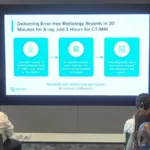In 2023, generative AI – a type of artificial intelligence technology that can produce a variety of content, including audio, images and text – was the rage.
While this is unlikely to change in 2023, there are a number of other emerging technology trends worth keeping an eye on. These are trends that are likely to play a critical role in meeting the needs of most businesses around the world.
To keep up with developments in generative AI and machine learning, here are some trends that are likely to influence business and technology decisions in 2024 and the years to come.
Other types of AI
There are a number of models of AI, and multimodal AI is one that will be making waves this year. While generative AI focuses on generating new content from learned data, multimodal AI integrates multiple data types such as speech, text, numbers and images to comprehensively analyse a problem and fundamentally achieve higher performance.
While unimodal AI models also exist, they only perform single tasks using single types of data. Everyone is trying to do everything they can to make the most of AI, and like many other computer applications, the depth of AI results, despite being so deep, is not without shortcomings such as inaccuracies and conflicts.
With multimodal machine learning, these challenges will be reduced as computer systems will become more accurate. In the future, multimodal AI is likely to evolve significantly, heralding a shift in the capabilities of generative AI.
AI will become more dynamic and intuitive. An example would be object recognition and analysis, where AI will be able to identify and provide information about objects in images and videos. Some examples of multimodal AI are GPT4, Llama 2 and Mistral.
The autonomous agents
Autonomous agents are computer systems designed to perform specific tasks, such as producing content, without relying on humans or requiring human intervention. They do this by using data to learn and adapt to new situations to make decisions without human intervention.
Agents can make predictions, take actions, and interact appropriately with users and other systems by analysing different types of data, all while applying the prevailing context.
As generative AI continues to evolve, these agents will be integral to improving the customer experience and supporting industries such as travel, retail, education and hospitality, as they will help reduce overall costs by minimising human intervention.
AI startups
Thanks to generative AI, AI startups have mushroomed across disciplines, and more such startups are likely to emerge in 2024. As they become many, they are likely to offer more sophisticated offerings. For example, in addition to AI chatbot-centric offerings, they are likely to create specific application-centric offerings, says Forrester Research analyst Rowan Curran.
More AI startups are likely to emerge in response to prevalent business challenges. Curran adds that 2024 is the year when generative AI will shape the enterprise IT ecosphere, as it becomes clearer what kinds of services can be built on top of AI systems.
AI governance
As more organisations adopt generative AI internally, the need for AI governance – the establishment of robust control structures to monitor and evaluate AI systems to ensure they comply with established ethical norms and regulations – is also growing.
For companies equipping their employees with generative AI and allowing AI to be used in the workplace, governance will ensure that those using the technology are not generating inappropriate prompts. Governance will also involve considering government regulations that touch on AI, and staying ahead of compliance.
It is prudent to note that generative AI uses intellectual property and, as such, could put organisations at risk of illegal appropriation of intellectual property. Governance can also provide guidance on how to deal with hallucinations, where AI systems produce distorted or false information.
Cybersecurity Standards
As innovations in computing get smarter and better, so do the challenges and threats to cybersecurity. These developments can mean an urgent need to maintain data privacy and security in the face of new threats that can easily bypass existing security measures, such as encryption.
Quantum technology, a class of technology based on quantum physics, is at the forefront of recent advances in computer science.
According to an article by the National Institute of Standards and Technology (NIST) in the US, public and private organisations doing business with the US government will be required to migrate to “post-quantum cryptography”, a type of encryption algorithm that is believed to be resistant to quantum attacks.
The conversation around quantum technology is likely to find its way into boardroom meetings, as it is likely to overturn cybersecurity standards.















